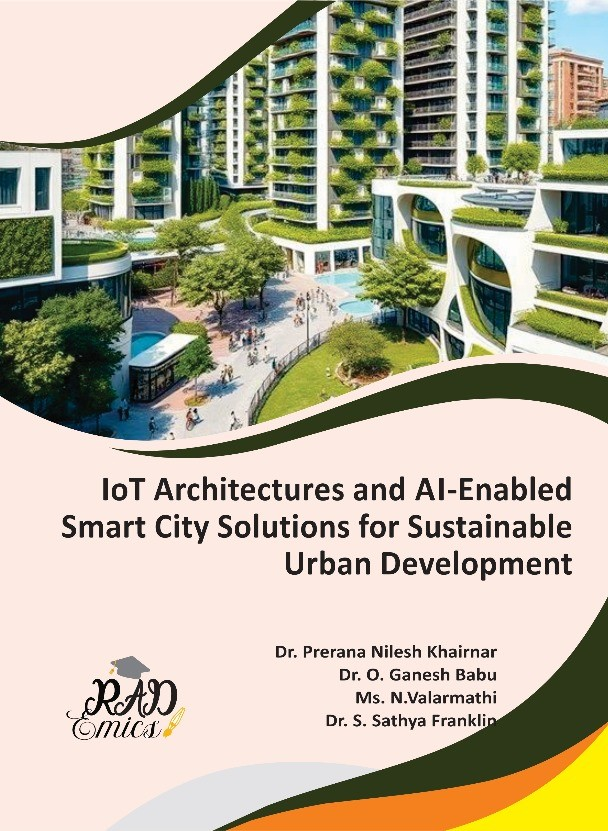
Author Name : Leeja Mathew, Senthil Selvi Chandramohan, Shoba Rajendran
Copyright: ©2025 | Pages: 36
DOI: 10.71443/9789349552241-02
Received: 18/11/2024 Accepted: 05/02/2025 Published: 24/04/2025
This book chapter explores the application of machine learning (ML) and deep learning (DL) algorithms for real-time data processing and decision-making within the context of smart cities. As urban environments evolve, the ability to harness vast amounts of data from diverse sourcessuch as sensors, IoT devices, and digital platformshas become essential for optimizing urban operations and improving quality of life. The chapter delves into the challenges and opportunities presented by these technologies, focusing on issues such as scalability, real-time performance, data quality, and the integration of heterogeneous systems. It also examines the critical role of model explainability, transparency, and ethical considerations in AI-driven decision-making processes. Moreover, the chapter discusses the importance of addressing uncertainty in smart city decision-making through advanced decision support systems, enabling cities to adapt dynamically to changing conditions. By investigating these themes, the chapter aims to provide comprehensive insights into the future of smart city systems powered by ML and DL, highlighting their potential to revolutionize urban management.
The emergence of smart cities represents a transformative shift in urban management, fueled by the integration of advanced technologies and data-driven solutions [1]. As urban populations continue to grow, cities are becoming increasingly complex ecosystems that demand innovative approaches for efficient management and sustainability [2]. Machine learning (ML) and deep learning (DL) algorithms have become critical enablers in addressing these complexities by enabling cities to process, analyze, and leverage vast amounts of real-time data generated by various sources, including sensors, Internet of Things (IoT) devices, and digital platforms [3]. These algorithms have the potential to optimize decision-making processes across multiple urban domains, from traffic management to resource distribution, public safety, and environmental monitoring, ultimately improving the quality of life for urban residents [4]. The widespread adoption of these technologies introduces a range of challenges, particularly in areas related to data integration, system scalability, real-time performance, and ethical considerations [5].
Real-time data processing is a cornerstone of smart city operations, and ML and DL algorithms are uniquely positioned to handle this challenge [6]. Smart cities generate an enormous volume of data at an ever-increasing rate, requiring advanced analytics to make timely and informed decisions [7]. For instance, real-time traffic monitoring systems rely on ML algorithms to predict traffic flow patterns and optimize signal timings, reducing congestion and enhancing mobility [8]. Similarly, DL models are employed in environmental monitoring to predict air quality levels, identify potential hazards, and recommend corrective actions. The ability to process and analyze data in real-time ensures that smart cities can respond to dynamic conditions quickly, facilitating better resource allocation, minimizing delays, and enhancing the efficiency of urban services [9]. Despite the promise of these technologies, the complexity and scale of data generated by smart cities necessitate continuous advancements in machine learning and deep learning techniques to ensure real-time decision-making remains effective and efficient [10].